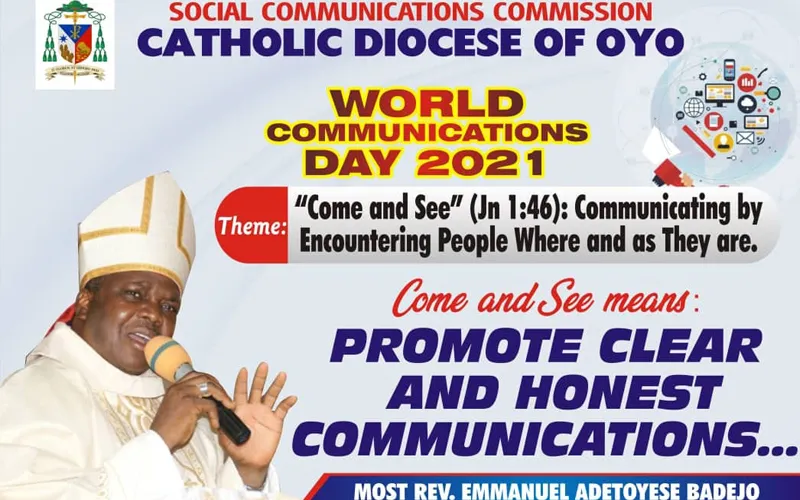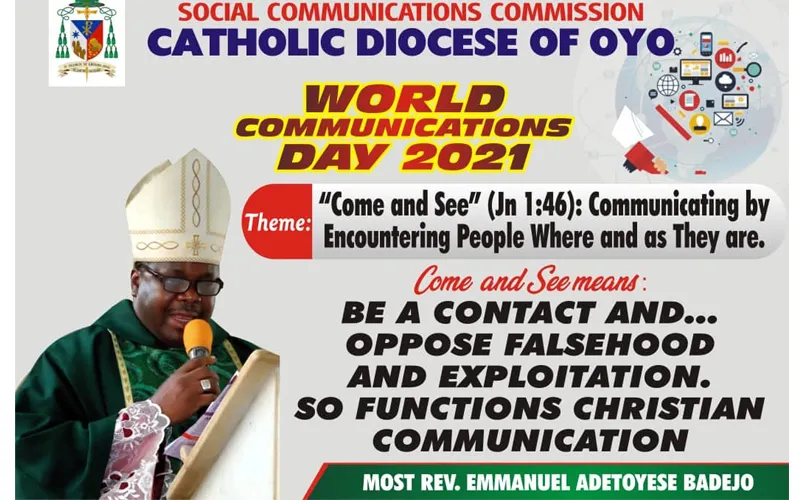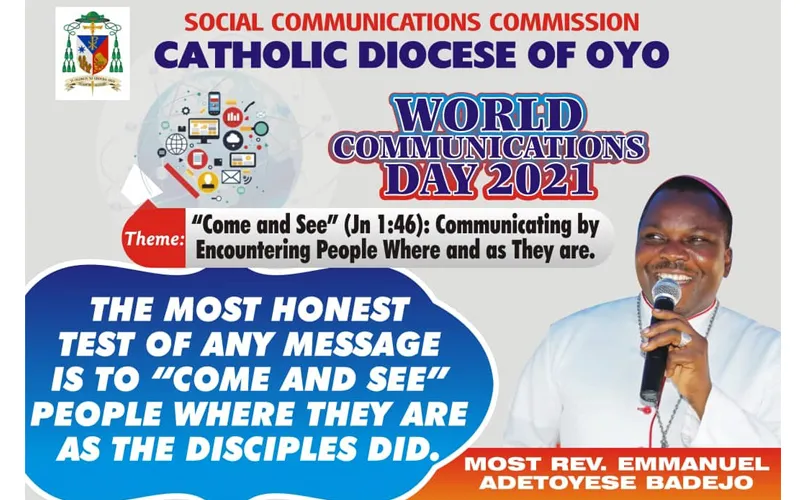Oyo, 10 May, 2021 / 6:54 pm (ACI Africa).
Ahead of the 2021 World Communications Day (WCD), the Bishop at the helm of the Pan African Episcopal Committee for Social Communications (CEPACS) is calling on Christian journalists on the continent to report “with love” so that those facing challenges find, in the reported stories, “sympathy and solidarity.”
In a reflection on Pope Francis’ message for the 2021 World Communications Day issued 23 January 2021 ahead of the May 16 event to be marked under the theme “Come and See”, Bishop Emmanuel Badejo advocates for constructive and “responsible journalism” in what he calls “Petals from the Pope’s message.”
In the reflection shared with ACI Africa Sunday, May 9, the Local Ordinary of Nigeria’s Oyo Diocese challenges Christian journalists in Africa to “tell their stories with love”, being keen to construct authentic stories “that can help many countries and peoples of the world which have been abandoned to their fate under racism, oppression, discrimination, conflicts, insurgency, epidemic and war to find sympathy and solidarity.”

“After all, the fact is that many countries and institutions and individuals who can make a difference, really rely only on the reports of the media and journalists for their decision-making process for bad or for good,” Bishop Badejo says in his reflection.










